|
|
|
|
|
|
|
|
|
Alaska Forum on the Environment, February 12-16, 2018 (Anchorage, Alaska)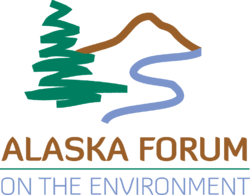 . AFE is a statewide gathering of environmental professionals from government agencies, non-profit and for-profit businesses, community leaders, Alaskan youth, conservationists, biologists and community elders. The diversity of attendees sets this conference apart from any other. The 2018 event will be our 20th year providing a strong educational foundation for all Alaskans and a unique opportunity to interact with others on environmental issues and challenges. . AFE is a statewide gathering of environmental professionals from government agencies, non-profit and for-profit businesses, community leaders, Alaskan youth, conservationists, biologists and community elders. The diversity of attendees sets this conference apart from any other. The 2018 event will be our 20th year providing a strong educational foundation for all Alaskans and a unique opportunity to interact with others on environmental issues and challenges.
|
Media
Cryptocurrency Mining in Iceland is Using so Much Energy, the Electricity May Run Out. The value of bitcoin may have stumbled in recent months, but in Iceland it has known only one direction so far: upward. The stunning success of cryptocurrencies around the globe has had a more unexpected repercussion on the island of 340,000 people: It could soon result in an energy shortage in the middle of the Atlantic Ocean. As Iceland has become one of the world's prime locations for energy-hungry cryptocurrency servers - something analysts describe as a 21st-century gold-rush equivalent - the industry's electricity demands have skyrocketed, too. For the first time, they now exceed Icelanders' own private energy consumption, and energy producers fear that they won't be able to keep up with rising demand if Iceland continues to attract new companies bidding on the success of cryptocurrencies. The Washington Post
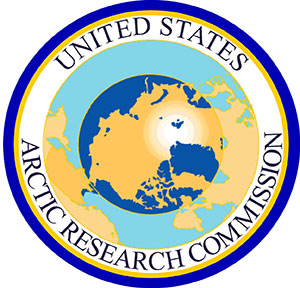 REPORT NOW AVAILABLE! Residential Heating in Remote Arctic Villages: Implementation Plan. REPORT NOW AVAILABLE! Residential Heating in Remote Arctic Villages: Implementation Plan. This report summarizes the second of three planned workshops focused on residential heating in remote Arctic villages. Following up on the first workshop in the series which identified data gaps and research needs related to home heating needs, this workshop was held to assess and identify progress, prioritize unmet research needs and remaining data gaps, and develop strategies to address outstanding data gaps and research needs. Arctic Renewable Energy Working Group
Russian Geographical Society, Northern Fleet Gear up for Landmark Arctic Expedition. The Russian Geographical Society (RGS) has started preparations for a complex years-long expedition to the Novaya Zemlya archipelago together with Russia's Northern Fleet, the RGS reported on its website. "To more intensively study high latitudes, the history of exploration of which is full of bright dramatic events, a scientific group was established in the Northern Fleet that studied and summarized some historical documents. The materials obtained will become the subject for investigation for the complex expedition..." TASS
Court Approves Threatened-Species Status for Ringed Seals in Alaska. In a decision based on long-term climate projections, the 9th U.S. Circuit Court of Appeals on Monday affirmed ringed seals in Alaska as threatened under the Endangered Species Act. The ruling could result in limits on oil and gas projects and other activity in the Arctic. It reverses a 2016 decision by U.S. District Court Anchorage Judge Ralph Beistline. The National Marine Fisheries Service in 2012 listed the Arctic ringed seal as threatened, based on long-term climate-model projections showing its sea-ice habitat shrinking. Anchorage Daily News
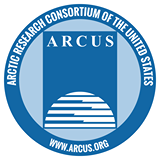 Empowering Arctic Indigenous Scholars and Making Connections: Applications due February 15, 2018. To empower Indigenous scholars and provide a key opportunity for officials at U.S. government agencies, non-governmental organizations, and other groups working on Arctic issues to learn and integrate information/perspectives from multiple Arctic knowledge systems, ARCUS and ICC Alaska invite applications from and/or nominations of leading Arctic Indigenous scholars to travel to Washington D.C. Two scholars will be selected to participate in 2018 and travel expenses and per diem will be provided. While the selected Arctic Indigenous Scholars are in D.C., ARCUS and ICC Alaska will facilitate meetings with officials at relevant U.S. government agencies, non-governmental organizations, and other groups, where such scholars will be able to share their interests, learn of available resources, build toward collaborative relationships, and provide on-the-ground perspectives to key decision-makers. Also, Indigenous Scholars will provide an open seminar/webinar to Arctic policy-makers and others interested in the Arctic. Arctic Research Consortium of the United States Empowering Arctic Indigenous Scholars and Making Connections: Applications due February 15, 2018. To empower Indigenous scholars and provide a key opportunity for officials at U.S. government agencies, non-governmental organizations, and other groups working on Arctic issues to learn and integrate information/perspectives from multiple Arctic knowledge systems, ARCUS and ICC Alaska invite applications from and/or nominations of leading Arctic Indigenous scholars to travel to Washington D.C. Two scholars will be selected to participate in 2018 and travel expenses and per diem will be provided. While the selected Arctic Indigenous Scholars are in D.C., ARCUS and ICC Alaska will facilitate meetings with officials at relevant U.S. government agencies, non-governmental organizations, and other groups, where such scholars will be able to share their interests, learn of available resources, build toward collaborative relationships, and provide on-the-ground perspectives to key decision-makers. Also, Indigenous Scholars will provide an open seminar/webinar to Arctic policy-makers and others interested in the Arctic. Arctic Research Consortium of the United States
|
|
Future Events
** New this week ** Different Ways of Knowing: Successful Examples of Knowledge Co-production in Arctic Research, February 16, 2018 (webinar).This webinar will highlight several successful examples of projects that bring Indigenous Knowledge holders and scientists together through a co-production of knowledge framework to create a holistic image of Arctic environmental changes. Featuring Carolina Behe (Inuit Circumpolar Council-Alaska), Raychelle Daniel (Pew Charitable Trusts), Nicole Herman-Mercer (U.S. Geological Survey), and Andy Mahoney (University of Alaska Fairbanks). This Friday 2/16/18 at 1 PM Eastern Time. More info: here.
A Changing Arctic, Registration closes March 1, 2018 (University of Oslo). The University of Oslo will offer a course this summer on the changing Arctic. Registration closes March 1st. The Arctic region has gained increased public, political, commercial and academic interest over the last decade. High-energy prices and technological advances have made it possible, if not yet commercially attractive, to exploit petroleum resources in the area. Climate change and the retraction of the polar ice have opened new sea transportation routes, considerably shortening the distance from Europe and North America to parts of Asia. The demand for high-quality white fish from the Barents Sea is steadily rising on international markets. States, international organizations and private interests, including emerging economies in Asia, now show a keen interest in the High North and the Arctic at large.
Methane Variation Over Terrestrial and Marine Arctic Areas (2010-2016): IASI Satellite Data, March 13, 2018 (Silver Spring, Maryland USA). There is evidence that methane is being released into the atmosphere at high northern latitudes as the Arctic warms up. Methane concentration in the Arctic lower troposphere was estimated between 2010 and 2016 with the Infrared Atmospheric Sounding Interferometer (IASI), a thermal IR spectrometer orbiting the Earth on a satellite MetOp-A. The area studied encompasses the Barents/ Kara seas and the Wester Siberian Lowland (WSL), one of the most important methane sources in high northern latitudes. This event is a NOAA's National Ocean Service Science Seminar.
** New this week ** 48th International Arctic Workshop 2018, April 5-6, 2018 (Boulder, Colorado USA). Hosted by the Institute of Arctic and Alpine Research (INSTAAR), University of Colorado The 2018 Arctic Workshop welcomes a community that includes all career stages - from student to distinguished world-class expert. The Arctic Workshop is open to all interested in high latitude environments, including those of the past, present, and future. Talks and posters on all aspects of Arctic science, social science, and engineering are invited, including Arctic and Antarctic climate, anthropology, atmospheric chemistry, engineering and infrastructure, environmental geochemistry, paleoenvironment, sociology, archeology, geomorphology, hydrology, glaciology, soils, ecology, oceanography, Quaternary history and more. If you are studying the Arctic, this is the conference for you.
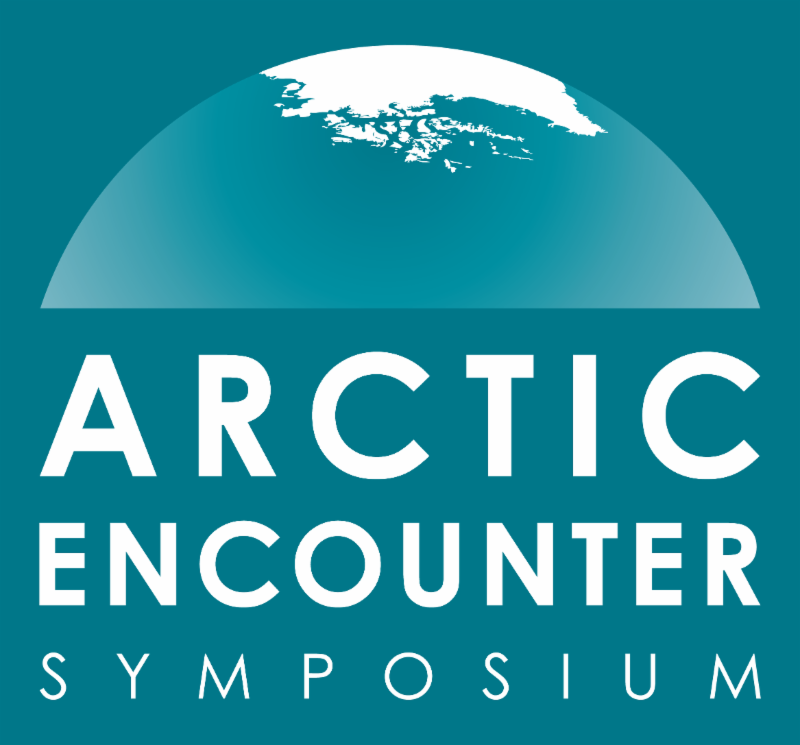 5th Annual Arctic Encounter Symposium (AES), April 19-20, 2018 (Seattle, WA, USA) 5th Annual Arctic Encounter Symposium (AES), April 19-20, 2018 (Seattle, WA, USA) - The Arctic Encounter, the largest annual Arctic policy conference in the U.S., will convene policymakers, industry leaders, scientists, Arctic artists and musical performers, and other stakeholders to debate and discuss emerging Arctic challenges and opportunities including policy, innovation, security, and development. The mission of AES is to raise awareness, engage challenges, and develop solutions for the future of the Arctic region and the people who live there. The 5th annual AES will take place in downtown Seattle at the Bell Harbor International Conference Center on Pier 66.
2018 North by North Festival, April 23-29, 2018 (Anchorage, Alaska USA). The North by North Festival captures the spirit of Alaska and the Arctic - to address our challenges and opportunities with Northern innovation and resilience, to build on a rich history and to ensure a future full of promise. The Festival is for the North, and organized by Northerners, with goals of sustainability, livability and growth. The Festival brings innovators from across Alaska, the nation and other Arctic regions to collaborate and address local and circumpolar challenges. Through knowledge, governance, business, design, film, music, food, literature and art, we celebrate the North.
Council on Earth Cryology, May 15-16, 2018 (Moscow, Russian Federation). Scientific council on Earth cryology of Russian Academy of Sciences together with Department of Geocryology of Faculty of Geology of Lomonosov Moscow State University, Institute of the Earth Cryosphere, the Tyumen Scientific Senter, Melnikov Permafrost Institute (Yakutsk) of the Siberian Branch of the Russian Academy of Science holds on May 15 - 16, 2018 an enlarged meeting with participation of the Russian and foreign scientists, engineers and experts: "Current problems of geocryology." The meeting of Scientific council on Earth Cryology of RAS has the status of the International meeting. The publication of materials in the collection of reports is planned. Submissions (Submission Form), offers on cooperation, support of a conference and papers (Sample of Paper) to e-mail: cryoconf18@gmail.com
The Effects of Climate Change on the World's Oceans, June 4-8, 2018 (Washington, DC USA). The 4th International Symposium will bring together experts from around the world to better understand climate impacts on ocean ecosystems - and how to respond. The event is hosted by a variety of groups including International Council for the Exploration of the Sea (ICES), N. Pacific Marine Science Organization (PICES), Intergovernmental Oceanographic Commission of UNESCO (IOC), and Food and Agriculture Organization of the United Nations (FAO).
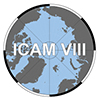
International Conference on Arctic Margins (ICAM) VIII, June 11-14, 2
The international Conference on Arctic Margins (ICAM) is a forum for earth scientists who study the Arctic. It was founded to help understand the little known Arctic geology and to foster cooperation and collaboration among Arctic researchers. There have been 7 meetings since its inception in 1991. See here for more information.
 POLAR 2018, June 15-27, 2018 (Davos, Switzerland). POLAR2018 is a joint event from the Scientific Committee on Antarctic Research (SCAR) and the International Arctic Science Committee (IASC). The SCAR meetings, the ASSW and the Open Science Conference will be hosted by the Swiss Federal Institute for Forest, Snow and Landscape Research WSL under the patronage of the Swiss Committee on Polar and High Altitude Research. The WSL Institute for Snow and Avalanche Research SLF is organizing POLAR2018. POLAR 2018, June 15-27, 2018 (Davos, Switzerland). POLAR2018 is a joint event from the Scientific Committee on Antarctic Research (SCAR) and the International Arctic Science Committee (IASC). The SCAR meetings, the ASSW and the Open Science Conference will be hosted by the Swiss Federal Institute for Forest, Snow and Landscape Research WSL under the patronage of the Swiss Committee on Polar and High Altitude Research. The WSL Institute for Snow and Avalanche Research SLF is organizing POLAR2018.
Arctic Observing Summit 2018, June 24-26, 2018 (Davos, Switzerland). The Arctic Observing Summit (AOS) is a high-level biennial summit that provides a platform to address urgent and broadly recognized needs of Arctic observing across all components of the Arctic system. AOS 2018 will be held in Davos, Switzerland ( June 24-26) and will focus on pressing issues in the implementation and support of sustained observations that can be addressed through a business-case lens. To that end, short submissions are requested that address any and all aspects of the overarching theme and sub-themes. Additional information can be found here.
17th International Congress of Circumpolar Health (ICCH17), August 12-15, 2018 (Copenhagen, Denmark). The ICCH congresses are held every third year in different locations in the circumpolar area and represent the largest scientific meetings worldwide on circumpolar health. The ICCH congresses serve as the primary source of information exchange and scholarly communication in issues relating to circumpolar health. More than 750 participants generally register and participate in each Congress, and more than 400 scientific papers or posters are usually presented.
UArctic Congress 2018, September 3-7, 2018 (Oulu and Helsinki, Finland).
The UArctic Congress 2018 will bring together key UArctic meetings and a science conference into one single gathering, including business meetings of the Council of UArctic, Rectors' Forum, Student Forum, and Thematic Networks & UArctic Institutes Leadership Team. The Congress is an integral part of the Finland's Arctic Council chairmanship program, and open to the public. The event will highlight the themes and priorities of the Finnish chairmanship, including the goals of the United Nations' 2030 Agenda for Sustainable Development, and the Paris Agreement under the UN Framework Convention on Climate Change.
The second Arctic Biodiversity Congress is hosted by the Conservation of Arctic Flora and Fauna (CAFF), the biodiversity working group of the Arctic Council, and the Ministry of the Environment, Finland. The second Arctic Biodiversity Congress will build on the success of the first Congress, held in 2014 in Trondheim, Norway, and will bring together scientists, policymakers government officials, Indigenous representatives, Traditional Knowledge holders, industry, non-governmental organizations, and others to promote the conservation and sustainable use of Arctic biodiversity.
|
|

  
4350 N. Fairfax Drive, Suite 510
Arlington, VA 22203, USA
External links in this publication, and on the USARC's World Wide Web site ( www.arctic.gov) do not constitute endorsement by the US Arctic Research Commission of external Web sites or the information, products or services contained therein. For other than authorized activities, the USARC does not exercise any editorial control over the information you may find at these locations. These links are provided consistent with the stated purpose of this newsletter and the USARC Web site.
|
|
|
|
|
|
|
|
|
 REPORT NOW AVAILABLE! Residential Heating in Remote Arctic Villages: Implementation Plan. This report summarizes the second of three planned workshops focused on residential heating in remote Arctic villages. Following up on the first workshop in the series which identified data gaps and research needs related to home heating needs, this workshop was held to assess and identify progress, prioritize unmet research needs and remaining data gaps, and develop strategies to address outstanding data gaps and research needs. Arctic Renewable Energy Working Group
REPORT NOW AVAILABLE! Residential Heating in Remote Arctic Villages: Implementation Plan. This report summarizes the second of three planned workshops focused on residential heating in remote Arctic villages. Following up on the first workshop in the series which identified data gaps and research needs related to home heating needs, this workshop was held to assess and identify progress, prioritize unmet research needs and remaining data gaps, and develop strategies to address outstanding data gaps and research needs. Arctic Renewable Energy Working Group Empowering Arctic Indigenous Scholars and Making Connections: Applications due February 15, 2018. To empower Indigenous scholars and provide a key opportunity for officials at U.S. government agencies, non-governmental organizations, and other groups working on Arctic issues to learn and integrate information/perspectives from multiple Arctic knowledge systems, ARCUS and ICC Alaska invite applications from and/or nominations of leading Arctic Indigenous scholars to travel to Washington D.C. Two scholars will be selected to participate in 2018 and travel expenses and per diem will be provided. While the selected Arctic Indigenous Scholars are in D.C., ARCUS and ICC Alaska will facilitate meetings with officials at relevant U.S. government agencies, non-governmental organizations, and other groups, where such scholars will be able to share their interests, learn of available resources, build toward collaborative relationships, and provide on-the-ground perspectives to key decision-makers. Also, Indigenous Scholars will provide an open seminar/webinar to Arctic policy-makers and others interested in the Arctic. Arctic Research Consortium of the United States
Empowering Arctic Indigenous Scholars and Making Connections: Applications due February 15, 2018. To empower Indigenous scholars and provide a key opportunity for officials at U.S. government agencies, non-governmental organizations, and other groups working on Arctic issues to learn and integrate information/perspectives from multiple Arctic knowledge systems, ARCUS and ICC Alaska invite applications from and/or nominations of leading Arctic Indigenous scholars to travel to Washington D.C. Two scholars will be selected to participate in 2018 and travel expenses and per diem will be provided. While the selected Arctic Indigenous Scholars are in D.C., ARCUS and ICC Alaska will facilitate meetings with officials at relevant U.S. government agencies, non-governmental organizations, and other groups, where such scholars will be able to share their interests, learn of available resources, build toward collaborative relationships, and provide on-the-ground perspectives to key decision-makers. Also, Indigenous Scholars will provide an open seminar/webinar to Arctic policy-makers and others interested in the Arctic. Arctic Research Consortium of the United States






